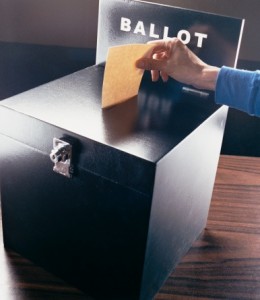This is What’s Wrong With PA’s Voter ID Law
As the trial is about to begin this Wednesday in Harrisburg over whether Pennsylvania’s voter ID law is discriminatory, there have been a few recent developments that remind us just how dangerous a decision to keep citizens away from the polls could be come November.
The case has been brought to the courts by the ACLU and other civil rights groups in defense of plaintiffs who say they’ll be denied the right to vote in the next election. All along the GOP in the state have claimed that the new law would protect against voter fraud. But defendants in the case made a major concession this week: They admitted there’s no in-person voter fraud on record in the Commonwealth, nor is there likely to be come the November election.
So what’s the real reason for the law?
Civil rights groups oppose voter IDs, saying that many elderly and low-income voters (including racial and transgender minorities) will have a tough time casting their vote if they head to the polls without the approved identification. As many as 750,000 registered voters in Pennsylvania do not have IDs from the Transportation Department – it’s an especially big problem in cities like Philly. The number of voters without identification is greater than the margin by which Obama could win the state – a figure that is definitely not being ignored by conservatives who have supported the law from the beginning.
The line that’s drawn now is a partisan one – and for good reason.
Democrats are accusing Republicans of using the law to keep Democrats away from the polls (since they are estimated to be the party most disproportionately impacted by the decision) while the GOP is claiming that IDs are important to avoid fraud (despite not having any record of voter fraud in the state). One Republican head honcho even admitted that the voter ID law would help Mitt Romney win the state. And Gov. Tom Corbett also claimed earlier this year that “99 percent of Pennsylvania’s [voters] already have acceptable photo IDs,” though data from the state in no way supports his assertion. It’s an outright lie.
That’s why the civil rights groups that have brought the case to Federal Court allege that the law violates the Pennsylvania Constitution by depriving citizens of their most fundamental right to vote. And for transgender and gender non-conforming voters, the same problem that plagues the SEPTA transpasses (one that will be amended by 2013) will also impact the freedom to vote.
Case in point: In states that already have strict voter ID laws, as many as a half-million Americans will be shut out at the polls because they don’t have the proper IDs this November. Who are these voters? Black, Hispanic, senior, low-income, Democrat and transgender.
Coincidence that the GOP would like to see these voters stay home on election day? Not a chance.
In every state where the law has been enacted – including Pennsylvania – support has come from Republican legislators.
But the woman who is at the center of the trial this week could change the way PA votes in the next election. Her name is Vivette Applewhite. She’s a 93-year-old who says that for the first time in her more than seven decades at the polls, she will not be able to vote in November because she’s unable to get documentation before the election, a problem plaguing almost 800,000 others exactly like her in the state.
While the governor says he will provide free photo ID cards to anyone who can produce proper documentation (not entirely true since the state charges a fee to obtain a birth certificate – at least $10 or more), Applewhite – a native of Macon, Ga. – says she lost her IDs years ago and doesn’t have a copy of her birth certificate (not even the state can seem to find it). And yet, this Pennsylvania resident has been active in the political process since she marched with Martin Luther King and cast her vote for John F. Kennedy. That she would be turned away at the polls this year should be an outrage to anyone who values the democratic process in America.
“What we’re not talking about here is just any right, we’re talking about the right to vote,” Witold Walczak, legal director of the ACLU of Pennsylvania, said at a news conference. “Two hundred years ago, we actually fought a war for this right. This is an extremely important right.”
In addition to determining whether the law discriminates over one political party or another, this week the judge will also decide whether it discriminates against minorities, a major support system for Obama.
It’s one thing for Mitt Romney to win the November election after working tirelessly to win votes. But it’s another to win it because his party worked tirelessly to enact a law that keeps American citizens who oppose him from voting.



